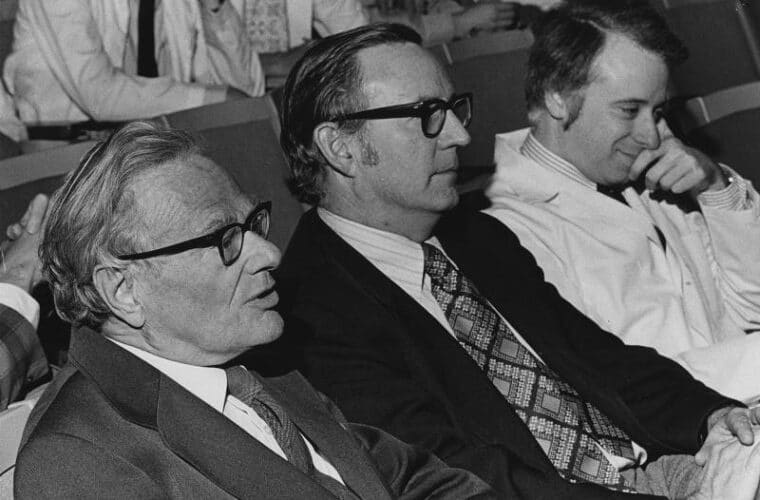Hans Krebs: The Biochemist Who Unraveled Cellular Energy

Hans Krebs (25 August 1900 – 22 November 1981) was a German-born British biologist, physician, and biochemist. Hans Krebs was awarded the Nobel Prize in Physiology or Medicine in 1953.
Life and Career
Hans Krebs was born on 25 August 1900, in Hildesheim, Germany. Krebs completed his medical degree in 1925 and then pursued further studies in biochemistry under the guidance of Otto Warburg, a Nobel laureate. This laid the foundation for his groundbreaking work in the field.
Krebs is best known for his discovery of the citric acid cycle, also known as the Krebs cycle or TCA cycle (tricarboxylic acid cycle). This cycle, which takes place within cells, plays a crucial role in generating energy through the breakdown of nutrients. Krebs’ research significantly contributed to our understanding of cellular respiration and metabolism. His work also led to the elucidation of the urea cycle, another vital biochemical process. Hans Krebs passed away on 22 November 1981, in Oxford, United Kingdom.
Award and Legacy
Hans Krebs was awarded the Nobel Prize in Physiology or Medicine in 1953, jointly with Fritz Lipmann, for their discoveries concerning the citric acid cycle and the role of adenosine triphosphate (ATP) in cellular processes.
Hans Krebs’ legacy continues to influence modern biochemistry and medicine. His discoveries laid the groundwork for understanding cellular metabolism, energy production, and the role of various molecules in biochemical processes. The Krebs cycle remains a fundamental concept taught in biology and biochemistry courses worldwide.
Observer Voice is the one stop site for National, International news, Sports, Editor’s Choice, Art/culture contents, Quotes and much more. We also cover historical contents. Historical contents includes World History, Indian History, and what happened today. The website also covers Entertainment across the India and World.
Follow Us on Twitter, Instagram, Facebook, & LinkedIn

